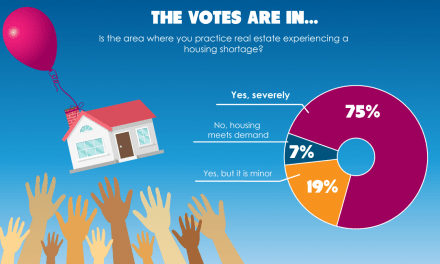The CFPB’s powers and possibilities compel real estate brokerages to practice ethically.
Functions of CFPB
In 2010, Congress passed the Dodd-Frank Wall Street Reform and Consumer Protection Act (Dodd-Frank). Among other things, this act established a new regulatory agency: the Consumer Financial Protection Bureau (CFPB).
The CFPB is responsible for regulating and enforcing consumer protection laws. The CFPB assumed authority over activities previously monitored by the Federal Trade Commission (FTC), the Department of Housing and Urban Development (HUD) and the Federal Reserve (the Fed).
“Consumer protection” is a very broad term, and as a result, the CFPB has an extremely long reach. Among other responsibilities, the CFPB is required to:
- interpret and enforce federal consumer financial protection laws;
- supervise creditors and financial markets;
- conduct research related to consumers and credit;
- solicit comments and complaints from consumers;
- further financial education among consumers; and
- protect consumers against discrimination and deceptive business practices. [Dodd-Frank Section 1013]
Real estate related consumer protection regulations chiefly regulated by the CFPB include:
- Regulation B: Equal Credit Opportunity (ECOA) [12 Code of Federal Regulations §§1002 et seq.];
- Regulation C: Home Mortgage Disclosure (HMDA) [12 CFR §§1003 et seq.];
- Regulation D: Alternative Mortgage Parity Act [12 CFR §§1004 et seq.];
- Regulation G: S.A.F.E. Mortgage Licensing Act – Federal Registration of Residential Mortgage Loan Originators [12 CFR §§1007 et seq.];
- Regulation H: S.A.F.E. Mortgage Licensing Act – State Compliance and Bureau Registration System [12 CFR §§1008 et seq.];
- Regulation N: Mortgage Acts and Practices-Advertising [12 CFR §§1014 et seq.];
- Regulation O: Mortgage Assistance Relief Services [12 CFR §§1015 et seq.];
- Regulation V: Fair Credit Reporting (FCRA) [12 CFR §§1022 et seq.];
- Regulation X: Real Estate Settlement Procedures Act (RESPA) [12 CFR §§1024 et seq.]; and
- Regulation Z: Truth in Lending (TILA). [12 CFR §§1026 et seq.]
Real estate oversight
Although the CFPB has limited authority to enforce rules controlling the sale and leasing of subdivisions, most of the CFPB’s attention to the real estate industry is directed toward residential mortgage loans.
Real estate practitioners who fall under the CFPB’s authority include:
- real estate agents and brokers;
- lenders;
- developers; and
- third-party service providers.
Among its other powers, the CFPB has the authority and responsibility to legally pursue and penalize any person or entity in violation of RESPA. [12 USC §5581(b)(7)(A)]
To effectively enforce RESPA, the CFPB conducts investigations of individuals and organizations suspected of violating real estate law. If the CFPB confirms the violations through its investigation of the facts, it has the authority to penalize the offender.
Consider a home builder. The builder enters into a joint venture (JV) agreement with a bank establishing a separate lending entity for the sole purpose of originating mortgages. The builder refers all their homebuyers to the JV lender for mortgage loans. In return for these referrals, the builder receives compensation.
The JV lender only originated loans for homebuyers referred by the builder, called captive business. The JV lender did not advertise its services to the public. All loan processing for the lender was conducted by the bank which co-owned the JV lender with the builder. All loans originated by the JV lender are funded by the bank and held on the bank’s books until their sale on the secondary mortgage market. All underwriting and other loan processing for loans the JV lender issued was completed by an employee of the bank. No employment agreement existed between the JV lender and the employee of the bank.
The CFPB found that the joint venture of the builder and the bank involved the payment of unlawful referral fees. The CFPB ordered the builder to stop offering or owning an affiliate which offers any type of real estate settlement services for a period of five years.
The CFPB also penalized the builder by requiring them to:
- pay the CFPB $118,194.20; and
- provide a copy of the CFPB’s consent order, for a period of five years, to any of the owner’s employees performing real estate settlement services. [Administrative Proceeding File No. 2013-CFPB-0001 – Paul Taylor, et al.]
The CFPB’s complaint process
Like the Bureau of Real Estate (BRE) or any other government agency, the CFPB bases investigations off of tipsters who file complaints. Real estate professionals may also submit complaints to the CFPB when they are aware of any violation of law by service providers – title companies, broker offices, lenders, escrows, home warranty insurers, etc.
Victims of unethical business practices may submit a complaint to the CFPB online, via telephone, mail, email, fax or referral. Like many other agencies charged with cleaning up public corruption, the CFPB offers support for those with questions regarding the complaint process.
For example, after a borrower submits a complaint to the CFPB against a lender, it forwards the complaint to the lender involved. The CFPB issues the borrower a tracking number to monitor the progress of their complaint online.
Once the CFPB sends a complaint to the lender, the lender is expected to review the case, contact the borrower if needed, resolve the issue and report its actions to the CFPB. The CFPB will forward the case to another government agency if the issue concerns state regulation or a matter outside the CFPB’s power. If the case concerns fraud, it will be forwarded to state and federal law enforcement agencies. [Dodd-Frank Section 1013]
The CFPB maintains an online complaint database. Anyone may view past complaints made by others against service providers, see complaints that are being processed and complaint resolutions.
Related article:
CFPB addresses consumer complaints with online access for all
The database does not reveal information about the person who filed the complaint. However, it does detail the company involved, its response, whether the response was disputed, the zip code from which the complaint originated and the type of complaint. [Semi-Annual Report of the CFPB, March 2013]
Those submitting complaints are given 30 days to dispute a company’s response. The complaints database is also searchable. Consumers can readily see which lenders receive complaints, whether the company responded to the complaint, and whether the response was timely.
The CFPB’s complaint database is located at http://www.consumerfinance.gov/complaintdatabase/.
In 2012, the CFPB received 91,000 consumer complaints. A whopping 50% of those complaints were related to mortgages. [Semi-Annual Report of the CFPB, March 2013]
In March 2013, the CFPB reported the most common type of mortgage complaint rose when home owners were unable to make their mortgage payments. This type of complaint accounted for 57% of all mortgage complaints submitted to the CFPB. Other mortgage complaints addressed:
- making payments (25%);
- applying for a loan (8%);
- signing the loan agreement (4%); and
- loan underwriting (2%). [Semi-Annual Report of the CFPB, March 2013]
Agent advice
Like the BRE, the CFPB is a receptacle for complaints with the power to enforce existing law. While the BRE has the power to restrict or revoke real estate licenses, and in some cases exact fines, it does not have the power to order money to be refunded, or to assess money losses. In this case, the CFPB has greater power to correct improper conduct and restore to a buyer, seller, borrower, etc., the money they lost as a result of another’s wrongdoing.
To file a complaint with the CFPB, any person may go to http://www.consumerfinance.gov/complaint/
Agents, or their clients, then follow the instructions on the CFPB’s website to report a violation of a specific area of consumer law.
To file a complaint with the BRE, agents or their clients may print and fill out Form RE 517: Licensee/Subdivider Complaint. After filling out the form, the agent of their client is to mail it to the BRE at:
California Bureau of Real Estate
P.O. Box 137000
Sacramento, CA 95813-7000
Other agencies available to receive complaints regarding violations of real estate law are listed below.
Reporting Misconduct in Real Estate Transactions | |
| California | Department of Financial Institutions Regulates state-chartered banks, state-chartered credit unions, state-chartered savings and loans, foreign banks, and business and industrial development corporations.Department of Corporations (DOC) Regulates residential mortgage lenders, California finance lenders, and escrow companies.Department of Fair Employment and Housing (DFEH) Regulates unlawful discrimination in housing and lending. Office of Real Estate Appraisers (OREA) |
| Federal | Federal Trade Commission (FTC) Regulates mortgage companies.Department of Housing and Urban Development (HUD) Regulates fair housing, manufactured housing, land sales, and contractors.Office of the Comptroller of the Currency (OCC) Regulates federally-chartered banks and state-chartered banks. Federal Deposit Insurance Corporation (FDIC) National Credit Union Administration (NCUA) |
An agent’s best way to reel in a response to their or their client’s complaint is to throw out, not one line, but many. Report violations to the BRE, the CFPB, and any other agency with the power to enforce real estate law, and watch…
The CFPB may just be the first to bite. And they have teeth.




















The CFPB is one of the biggest waste of tax payers money. A completely useless organization who has no authority over banks or anyone else. They are simply an oversight committee. The CFPB should be shut down.